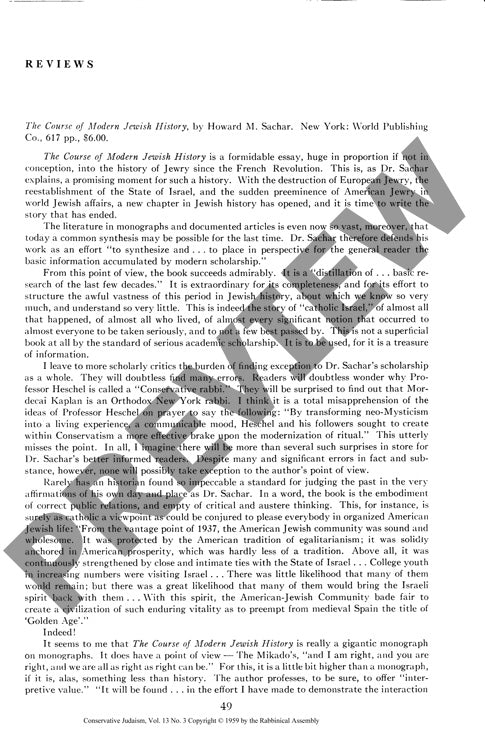Reviews
Couldn't load pickup availability
Modern Jewish scholarship faces an ongoing challenge: how to balance comprehensive historical documentation with meaningful interpretive analysis. Three significant works exemplify this tension, each approaching Jewish intellectual history from distinct angles. Howard M. Sachar's "The Course of Modern Jewish History" ambitiously synthesizes Jewish experiences since the French Revolution across 617 pages, thoroughly documenting the destruction of European Jewry, Israel's establishment, and American Jewry's emergence. Yet despite its scholarly breadth, the work substitutes "correct public relations" for deeper historical interpretation, revealing an overreliance on contemporary American Jewish perspectives. Arthur Cohen's study of Martin Buber demonstrates the opposite challenge, attempting to distill a half-century of philosophical development into a brief format. While Cohen's elegant prose successfully illuminates Buber's dialogical approach and I-Thou philosophy, the condensed treatment necessarily separates Buber's pursuit of holiness from his broader philosophical framework, limiting full understanding. Through close textual analysis and comparative scholarly assessment, these reviews reveal how modern Jewish scholarship continues to negotiate between comprehensive documentation and interpretive depth, highlighting both the achievements and limitations of different approaches to Jewish intellectual history.

More Information
-
Physical Description
-
Publication Information
Published 1959
ISBN
-
Publication Credits

